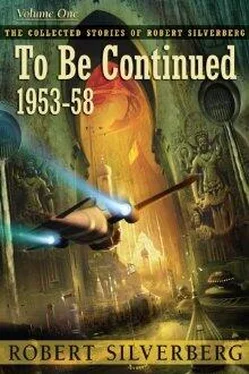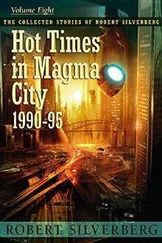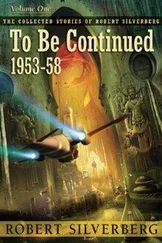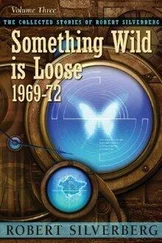Robert Silverberg - A Man of Talent
Здесь есть возможность читать онлайн «Robert Silverberg - A Man of Talent» весь текст электронной книги совершенно бесплатно (целиком полную версию без сокращений). В некоторых случаях можно слушать аудио, скачать через торрент в формате fb2 и присутствует краткое содержание. Год выпуска: 2012, ISBN: 2012, Издательство: Subterranean Press, Жанр: Фантастика и фэнтези, на английском языке. Описание произведения, (предисловие) а так же отзывы посетителей доступны на портале библиотеки ЛибКат.
- Название:A Man of Talent
- Автор:
- Издательство:Subterranean Press
- Жанр:
- Год:2012
- ISBN:978-1-59606-507-9
- Рейтинг книги:4 / 5. Голосов: 1
-
Избранное:Добавить в избранное
- Отзывы:
-
Ваша оценка:
- 80
- 1
- 2
- 3
- 4
- 5
A Man of Talent: краткое содержание, описание и аннотация
Предлагаем к чтению аннотацию, описание, краткое содержание или предисловие (зависит от того, что написал сам автор книги «A Man of Talent»). Если вы не нашли необходимую информацию о книге — напишите в комментариях, мы постараемся отыскать её.
A Man of Talent — читать онлайн бесплатно полную книгу (весь текст) целиком
Ниже представлен текст книги, разбитый по страницам. Система сохранения места последней прочитанной страницы, позволяет с удобством читать онлайн бесплатно книгу «A Man of Talent», без необходимости каждый раз заново искать на чём Вы остановились. Поставьте закладку, и сможете в любой момент перейти на страницу, на которой закончили чтение.
Интервал:
Закладка:
A Man of Talent
by Robert Silverberg
There was a scrap of a clipping that Emil Vilar carried about with him, a review of his first and only volume of poetry. Now, on this new world, he drew it out and read it for the ten-thousandth time. It was yellow with age, and the print was blurred, but that hardly mattered; the words were graven deep in Emil Vilar’s memory.
We welcome Emil Vilar both for his technical gifts and his breadth of understanding. He speaks with the authentic poetic voice. His book, certainly the most promising debut volume in many years, perhaps heralds the arrival of a major poet. Yet it must be doubted that Mr. Vilar will have the opportunity to fulfil this promise, working as he must in a world where such art as his is doomed to be stillborn. With the audience for poetry of any quality already nearly extinct, how can an Emil Vilar sustain and develop his talent?
Vilar had reddened with shame when the review appeared. He had known, inwardly, that it was the truth, that he had the stuff of a major poet within him, but he neither dared to take that resonant label upon himself nor welcomed another’s saying it. But it had not mattered much. With or without the burden of that reputation, he had failed to find his following. It was not an age of poetry but of verse: the occasional ode, the snappy quatrain, the glorified limerick. The craft of poetry was nearly dead, the poet’s function distorted. Practical matters, the immediately useful thing—they had triumphed on Earth. It was no century for the artist. A crowded, harried world could not afford such luxuries.
He had tried. For twenty years after, he had continued to write and to try. And finally he had admitted the truth of what the anonymous reviewer had said—and he had left Earth forever.
He looked up from the clipping at the landscape of his new world. He had selected it at random, from the thick volume of catalogued worlds in the library. Which world it was did not matter to him. All that mattered was that it was not Earth.
“Rigel Seven,” he said aloud. The words were strange in his mouth, and he savored the interplay of the not-quite-assonant vowels of the two mild trochees that named his new home.
He was faintly disappointed, now that he was here, that he had picked a Terraformed planet. His motives had been clear enough at the start: he wanted a world as much like and as far from Earth as possible, where he could work in peace, unknown and undisturbed—where people would not plague him with their well-meant misinterpretations of his work, sting him with accusations of ivory-towerism or artistic irresponsibility, or call him any of the other names they had called him because he insisted on writing his poetry for himself and himself alone.
Earth didn’t understand. Earth wanted him to be a rhymer, not a poet—and so Emil Vilar had quietly removed himself from the Terran scene. He had chosen a Terraformed planet as his new home. But as he looked at the gently sloping green hills and the familiar-seeming puffs of white fleece in the soft blue sky, he realized he had made one of his rare mistakes. How much richer his imagination would have been, he thought sadly, had he selected an Alienform world—one which had not yet been converted into a carbon copy of the mother planet. Here he had the same sky and the same clouds as on Earth; only the Sun was different, a hard, distant dot of incalculably ferocious intensity.
Well, he was here, and here he would stay. Carefully he folded his clipping and slid it into his wallet. Rigel Seven was as good a place as any, and any would be better than Earth.
The robot in the Earthside routing office had told him, with a smirk on its mirrored face, that he was the first emigrant to Rigel Seven in over five hundred years. That had been all right, too.
The planet had been settled eight hundred years earlier by sixteen wealthy Terran families, who had purchased it jointly as a private estate. The conditions of the sale, of course, had been that the planet remained open to all comers for emigration, but that was a safe risk. The sky was full of stars, and each had its cluster of worlds; who would cross five hundred light-years to settle on Rigel Seven, when Sirius and Vega and Procyon and the Centauri stars beckoned just a few light-years from Earth?
Who but Emil Vilar, fleeing quietly from the world that would never understand him?
He had saved, in his fifty years, some five thousand dollars. That had nearly covered the transit fee. The rest had been supplied by his friends.
There had been six of them, men with faith in Emil Vilar. They had fought his going, but when they saw he was determined to go, they helped him. They contributed the needed thousand to see him through the journey, and they established a trust fund that would provide a monthly remittance for him for the rest of his life.
He took a deep breath. Rigel Seven was Terraformed, but they had left out the stink of Earth’s air and the filth of her cities. The air was fresh and clear here. He smiled at the sight of his shadow, stretched mightily ahead of him over the grass.
For the first time in his memory, he felt happy.
The Rigel Seven spaceport was at the edge of a broad field that swept up the side of the hill in the distance like a green carpet. Farther back, on the hill, Vilar could see the shimmering paleness of a domed house. Someone was coming down the brown, winding path that led from the hill to the field.
He hefted his small suitcase and started to walk forward rapidly. The man met him in the middle of the field. He was tall and bronzed, shirtless, with long, rippling muscles lying flat and firm on his arms and chest. Vilar felt suddenly ashamed of his own dumpy body.
“You’re the emigrant, aren’t you?”
“I am Emil Vilar. The ship has just left me here.”
“I know,” the tall man said, grinning affably. “We saw it come down. It was quite a novelty for us. We don’t get much traffic here, you know.”
“I can imagine,” Vilar said quietly. “Well, I shan’t bother you much. I keep to myself most of the time.”
“We have a place all ready for you. My name’s Carpenter, by the way—Melbourne Hadley Carpenter. Come, I’ll show you to your shack, and then you can come visit us later. We’ll tell you how things work here.”
“Work? But—I do not plan to participate in any communal activ—”
He paused, frowning, and shook his head gently. This was no time to spout a declaration of principles. “Never mind,” he said. “Show me where I stay.”
Carpenter led him back up the path to the foot of the hill, where there was a small shack looking upward at the great domed house.
“This is ideal,” said Vilar. It was just what he had envisioned when he had made arrangements to live here.
“See you later,” Carpenter told him, waved cheerily, and left. Vilar put a hand on the door-opener, broke the photonic circuit, and stepped in.
One bookcase, one bed, one closet, one dresser.
Ideal.
Vilar unpacked his single suitcase rapidly. It had been no struggle for him to break away from his Earthly possessions; he had been able to bring everything he owned and still make the fifty-pound mass limit of the subspace liner with ease.
First came the books, just eight of them. There was the slim blue-bound copy of Poems, by Emil Vilar (London, 2743, 61 pp.). After that, Pound’s Cantos, the complete hundred and forty. Next came the King James Bible, Swann’s Way, the complete Yeats, Davis’s On Historical Analysis (both volumes in one), the plays of Cyril Tourneur, and the Greek Anthology. These were all Vilar had kept from a lifetime of reading, and he had added the most recent—the single volume of Proust—sixteen years before. Now he considered his library closed.
Читать дальшеИнтервал:
Закладка:
Похожие книги на «A Man of Talent»
Представляем Вашему вниманию похожие книги на «A Man of Talent» списком для выбора. Мы отобрали схожую по названию и смыслу литературу в надежде предоставить читателям больше вариантов отыскать новые, интересные, ещё непрочитанные произведения.
Обсуждение, отзывы о книге «A Man of Talent» и просто собственные мнения читателей. Оставьте ваши комментарии, напишите, что Вы думаете о произведении, его смысле или главных героях. Укажите что конкретно понравилось, а что нет, и почему Вы так считаете.












